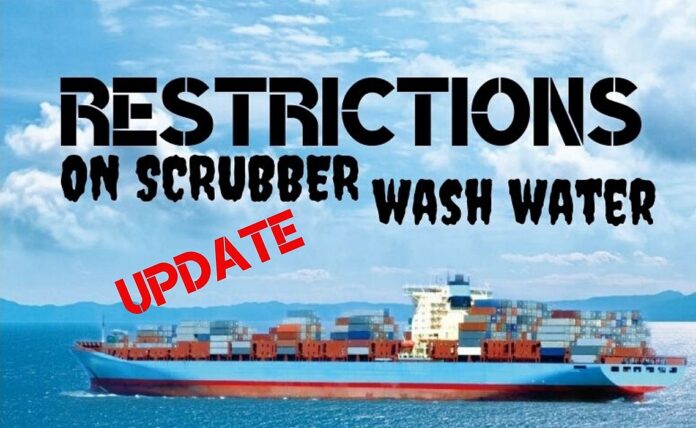
(www.MaritimeCyprus.com) The IMO considers exhaust gas scrubbers to be an acceptable means of reducing vessels’ sulphur emissions and ensuring compliance with MARPOL Annex VI. A separate guideline, Resolution MEPC.259(68), specifies the requirements for the verification, testing, survey and certification of scrubber systems and sets out the criteria for discharging scrubber washwater into the sea.
However, some coastal states and ports have implemented local regulations with more stringent requirements that restrict or completely prohibit the discharge of washwater from open loop scrubbers or prohibit the use of scrubbers. We are currently aware of the following regions/states/ports with local regulations that have an effect on the discharge of exhaust gas scrubber washwater, although the list should not be considered as complete.
Readers are aware that in addition to using compliant fuel to meet the 0.50% sulphur requirement that entered into force on 1 January 2020, there also exists the option to use “equivalent” compliance mechanisms in accordance with Regulation 4 of MARPOL Annex VI, one of which is the use of Exhaust Gas Cleaning Systems (EGCS) commonly known as Scrubbers.
Exhaust gas cleaning systems (EGCS) – more commonly referred to as scrubbers – are an accepted equivalent measure in complying with the IMO 2020 global sulphur cap. The use of scrubbers has split the shipping industry. Ports around the world are looking at the impact of scrubber use in their waters.
A number of ports and regions have already stated that they will not allow the discharge of washwater from scrubbers.
The table below summarises the positions taken by ports that have or will prohibit the use of scrubbers, or have placed conditions on their use.
This information is to the best of our knowledge and is for guidance only. For up-to-date and definitive information, contact the local authorities or agents.

